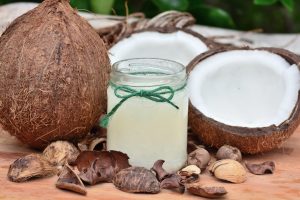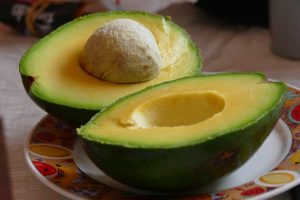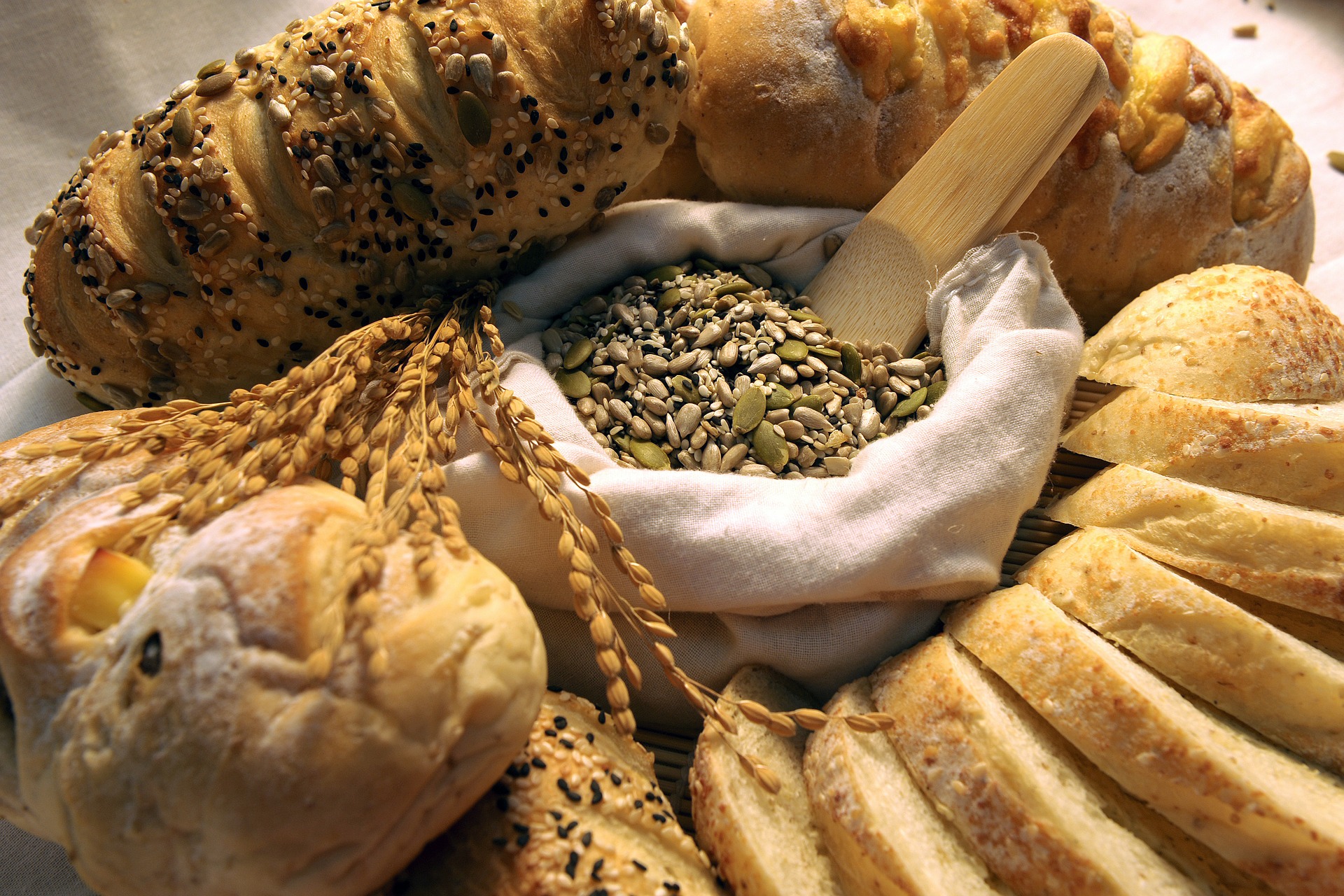So, can eat oil on a plant based diet? If you ask a doctor, a nutritionist, and some sort of fitness guru, they are likely to have different answers. Many professionals urge to reduce oil consumption to the minimum. Others link moderate oil consumption to reduced risks of diabetes (yes!) and cardiac diseases. To resolve this controversy, let’s start by understanding what oil really is.
What is oil?
It’s fat. Yes, simple as that, 100% of all oils – olive, avocado, coconut, peanut, canola, sesame, etc. – is liquid fat. Oil can be plant-based, derived from vegetable seeds, nuts, or the flesh of the fruit. Plant-based means vegan means good, right? Yes, but even though they may harm the environment less, they sure do harm your health. More on this later. Oil can also be animal-based, butter from a cow, or lard from a pig. These should definitely be removed from your diet, if not for health reasons, but for the cruelty of animal farming. Looking up a dairy farm on Youtube does the trick.

When oils are produced, they are altered to become “safe” for human consumption. The production process often includes some sort of chemical alteration with the use of solvents, bleach, or various acids. Processing strips away all the nutrients that are found in the original seeds or nuts from which is produced. Thus, it substantially decreases the product’s health benefits and increases the amount of fats. As an example, here are two charts that display nutritional values of raw coconut meat versus coconut oil.
Notably, coconut oil is often praised for its health benefits. A simple google search disproves these claims. According to the American Heart Association (AHA), saturated fats increase the amounts of ‘bad’ LDL cholesterol in your blood. This increases the chances of heart diseases. AHA recommends consuming no more than 13 grams of saturated fats a day to maintain a healthy diet. A tablespoon of coconut oil is around 14 grams, which is 11,5 grams of saturated fats. Do you see where I’m going with this? You can eat oils on a plant-based diet, but steering yourself from them is probably a good idea.
Liquid Fats vs. Solid Fats
The majority of oils are liquid at room temperature. Some exceptions include butter, coconut, and palm oils, which are solid. This characteristic is determined by high or low levels of saturated fat, the ‘unhealthy’ type. Higher amounts of saturated fat make oil solid, and vice versa. When manufactured, oil is hydrogenated to become spreadable (butter-like), which turns its possibly healthy fats into trans fats.

These fats were partially or fully banned in many countries around the world due to the risks of cardiovascular diseases. Thus, the first simple tip – avoid solid oils (margarine, butter, etc.) as much as you can. If you want a healthy, plant-based spread that won’t block your arteries, just use roasted veggies or avocados.
What’s the deal with fats?
To understand whether you can eat oil on a plant-based diet, let’s look at oil’s only component – fat. Since fat is basically a synonym for oil, let’s look at how different types of fats affect your body. Fats are often associated with weight gain and increased risks of many diseases, mainly cardiovascular ones. However, it is true that a healthy human body needs dietary fats. So, which fats, and how much of them, are good for you?
3 Types of Fats
There are three groups of dietary fats: saturated, unsaturated (which is made up of monounsaturated and polyunsaturated), and trans fats. Now, not all these will cause you a stroke; each is responsible for their goods and bads. Let’s take a look.
Saturated Fat
Saturated fats are mostly found in animal-based products like meats and dairy. The majority, if not the entirety of fast food is rich with saturated fats. Unsurprisingly, fast food is one of the biggest sources of saturated fats in the United States.
There is considerable disagreement around the impact of these fats on one’s health. Most often, they are considered harmful. The majority of health professionals point out the correlation between saturated fats and cardiovascular diseases. In the last decade, however, some scientists have tried disproving this by pointing out flaws in previous research.
Polyunsaturated Fat
Polyunsaturated fats consist of two types: Omega-3 and Omega-6 fatty acids. Mainstream science often refers to these as ‘good fats’. Your body isn’t able to produce these, therefore you’re responsible for your optimal daily intake. Polyunsaturated fats are found in walnuts, sunflower seeds, tuna, and salmon, as well as most vegetable oils.
For decades, the scientific community has been in agreement that saturated fats should be replaced with polyunsaturated ones. In particular, the ‘good fats’ have been found to decrease cholesterol levels.
However, studies in 2014 revealed that higher levels of omega-6 actually increase the risks of inflammation which leads to arterial disease. The role of polyunsaturated fats, omega-6 in particular, has been questioned since.
Monounsaturated Fat
Monounsaturated fats are very similar to polyunsaturated onse. The primary difference is their chemical makeup, which we are not concerned with. It is acclaimed for the same health benefits which I will describe in greater detail later. Common sources of monounsaturated fats include nuts, avocados, canola oil, olive oil, sunflower oil, peanut oil, and sesame oil.
Trans Fat
Trans fats are bad, very bad, you-should-never-eat-them type of bad. In 2004, Denmark became the first country in the world to ban trans fats from its food supply chains. Since then, most countries in Europe and the Americas have either partially or fully eliminated them from their foods.
The World Health Organization claims that annually, trans fats are responsible for half a million premature deaths from cardiovascular disease. Hence, WHO pledged to eliminate trans fats from the global food supply by 2023. These fats are created when hydrogen is combined with vegetable oils, a process called hydrogenation.

As I’ve briefly mentioned earlier, hydrogenation is used to create solid, spreadable oils, particularly margarine. If you only have one takeaway from this article, let it be this: do not eat margarine. When trans fats entered the market in 1950, they quickly became very popular in food manufacturing.
Trans fats substantially increased shelf life for many products, making them attractive for producers of pastries and fast food. Many restaurants used oils full of trans fat because these oils could be used more than once when deep-frying. Additionally, they were also cheaper than other oil alternatives.
What are the health benefits of fats?
Health benefits of dietary fats depend on the amount that you consume. Moderation is key. Though fats are crucial for our survival, our bodies do not produce all of them. Hence, we must eat appropriately to sustain ourselves.
Polyunsaturated fats
Polyunsaturated fats reduce risks of arrhythmia (irregular heartbeat) and diabetes, lower blood pressure, and control sugar levels in your blood. They are also crucial for inflammation processes, which help you recover from infections and injuries. However, as I’ve mentioned before, polyunsaturated fats consist of two fatty acids – Omega-6 and Omega-3. What’s important here is the ratio of these two acids.
History break:
All through evolution, humans typically consumed these at 4:1 or 1:4 ratios. This depended on whether the societies predominantly ate seafood, which is rich in Omega-3 (Inuit), or animal meat that’s rich in Omega-6 (hunter-gatherers).
Thousands of years later, the typical Omega-6 to Omega-3 ratio is 16:1. Some argue that populations in the past had lower life expectancy than us, making a case for Omega-6 fatty acids. However, hunter-gatherers didn’t die of diabetes or heart diseases, they were stabbed by a hunter from a different tribe. Attributing better survival to fatty acids would be misleading. The end.
In any case, the 16:1 ratio is much larger than what the human body has been historically adapted to. This is why most professionals advise for a reduction of Omega-6 and increase in Omega-3. Too much of Omega-6 has been found to increase blood pressure and increase risks of cardiovascular disease. Just the right, balanced amount of it is proved to do the opposite.
Ugh. Fats are complicated. In general, consuming less Omega-6 and more Omega-3 is the appropriate advice.
Monounsaturated fats
Monounsaturated fats have the same health benefits as polyunsaturated ones. They reduce cholesterol levels which decreases your risks of stroke and various heart diseases. Often, foods that are rich in monounsaturated fats are also full of vitamin E.
American Dietary Guidelines, released in 2015, recommend getting no more than 25-30 % of your daily calories from unsaturated fats. This includes both ‘mono-’ and ‘poly-’. If an average adult consumes around 2000 calories a day, that amounts to around 500 calories a day. Since one gram of any fats is 9 calories, you will need approximately 55 grams of unsaturated fats a day.

To add perspective, one full avocado has 20 grams of unsaturated fats in it. Only one avocado gets you a third of your daily ‘good fats’ intake. You can eat oil on a plant-based diet, but steering yourself from them is probably a good idea.
Saturated and trans fats
As you already know, these can be quite dangerous for you. Both saturated and trans fats significantly increase cholesterol levels in your blood, which can build up and block your arteries. American Heart Association urges to limit the consumption of saturated fats to no more than 6% of your total calories.
After simple calculations, this is equal to 120 calories, or 13 grams of saturated fat a day. When it comes to trans fats, doctors are unanimous in asserting that these should be completely eliminated from your nutrition. Trans fats actually do not serve any function in human bodies, thus, we do not need them.
Are all oils bad?
Now that you have an understanding of what oil is, and what roles fats play in our lives, it is worth comparing different types of oils in their nutritional “values”. This is key when deciding whether you can eat oil on a plant-based diet. Arguably, some oils are less harmful than others.
Nevertheless, plant-based diet advocates, such as ourselves, usually argue that we can safely take oils away from our diets completely. It is worth remembering that too much of any fats is bad for your health. Most importantly, while we do need some fats, we can easily get them from whole foods and not oils.
Here’s a table of various cooking oils and the amount of fats (in grams) per a tablespoon.
Popular Cooking Oils
| Popular Cooking Oils | Saturated fats (‘bad’) | Unsaturated fats (‘good’) |
| Coconut | 11.2 | 2 |
| Olive | 2 | 11.2 |
| Avocado | 1.6 | 11.6 |
| Walnut | 1.2 | 11.8 |
| Grapeseed | 1.3 | 11.6 |
| Peanut | 2.3 | 10.5 |
| Sesame | 1.9 | 10.9 |
| Canola | 1 | 12 |
| Flaxseed | 1.2 | 11.7 |
| Sunflower Seed | 1.2 | 11.6 |
Therefore, can you eat oil on a plant-based diet?
Yes, you can. Plant-based oils, when in moderation, won’t kill you.
Oils are fats, and fats are critical for our survival. Dietary fats give us energy, sustain the growth of cells, and play key roles in many other bodily functions. Moreover, our bodies do not make polyunsaturated fats, which makes them essential nutrients that we must consume.
However, we DO NOT NEED OIL to absorb the required amount of fats. We are perfectly capable of receiving those from a variety of healthy whole foods in our plant-based diets. In addition to providing us with essential dietary fats, these foods give us plenty of nutrients that oil does not have.
As an example, here is a chart with healthy foods you can incorporate into your diet for sufficient fat intake.
Healthy Fats
| Unsaturated Fats (in grams) | |
| Avocado (one whole) | 20 |
| Walnuts (100g) | 53 |
| Olives (100g) | 7 |
| Chia Seeds (1 tbsp) | 3 |
| Almonds (100g) | 43 |
| Quinoa (100g) | 5 |
| Flaxseeds (1 tbsp) | 11.7 |
Add chia seeds into your smoothies, or use them to make fantastic puddings. Sprinkle some almonds and flax seeds into your morning oatmeal. Use quinoa to make a super easy delicious pizza crust! It seems like everyone in the world has been eating avocado toasts in the morning. If you didn’t catch up to the world’s trend, do it now!
Can you eat oil on a plant-based diet? Yes. Should you do it? Probably not.
You may also like: WHAT CAN YOU EAT ON A PLANT BASED DIET? >>CLICK HERE!
Below is a Pinterest friendly photo…. so you can pin it to your Veggie Board!!











